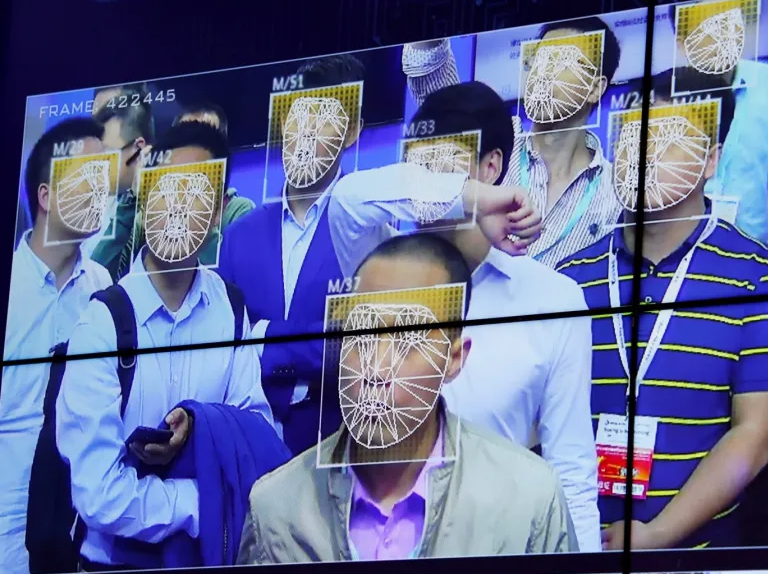
The UK government is planning to expand the use of facial recognition technology in the country, citing its proven effectiveness. However, this move has raised concerns, with some accusing the authorities of sliding toward mass surveillance, according to a report by AFP.
An experimental camera was deployed near the Croydon station in South London in December, leading to the apprehension of ten suspects involved in cases of threats, bank fraud, or theft. Facial recognition technology was specifically utilized during the British Formula 1 Grand Prix in May, and it is considered a “top priority,” according to Chris Philp, the Minister for Police, emphasizing its “high potential.” He stated that its deployment led to arrests that might have been impossible without this technology, preventing false alarms.
This desire for expanded use has sparked debates among lawmakers, with some calling for regulatory measures to prevent misuse. They argued that facial recognition involves the mass processing of sensitive biometric data from vast numbers of individuals, often without their knowledge, posing a “serious threat to the rights of the general public.”
Opponents also highlighted the risks associated with using this technology in private spaces, suggesting that it could deter some from making essential purchases or even subject them to intrusive interventions or confrontations with security personnel. Last year, the owner of the “Sports Direct” store chain defended the use of facial recognition technology, claiming it led to a reduction in theft and violence against employees.
From the perspective of civil rights advocates, Mark Johnson of “Big Brother Watch” sees facial recognition as an “Orwellian tool” transforming everyone into mobile identity cards. Opponents argue that this technology leaves a lot of power unchecked in the hands of the police, who have recently been granted increased powers for arrests during protests.
Concerns particularly focus on the lack of oversight regarding how the police compile their watchlists, which, according to critics of facial recognition technology, may include individuals with mental health issues without suspicion of any wrongdoing. These tools require “legal and technical oversight for responsible and ethical use,” according to an activist who spoke to AFP on condition of anonymity, expressing concern that the police lack the resources and capability for such oversight.
Security forces emphasize that they immediately and automatically delete the data of anyone not on the watchlist. The Home Office insists that current law strictly governs the use of this technology.
In June 2023, the European Parliament called for a ban on automatic facial recognition systems in public places. In the UK, some members of Parliament opposing these technologies want to go even further, with Conservative MP David Davis stating that facial recognition “has never received explicit approval from Parliament” and deeming it a tool for “mass surveillance” with no place in the UK.
Leave a Reply